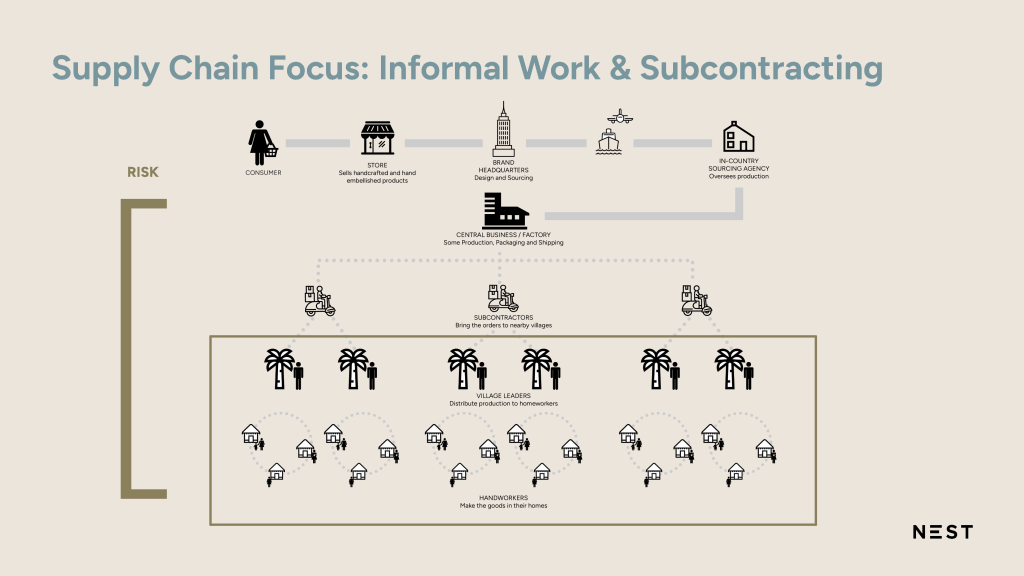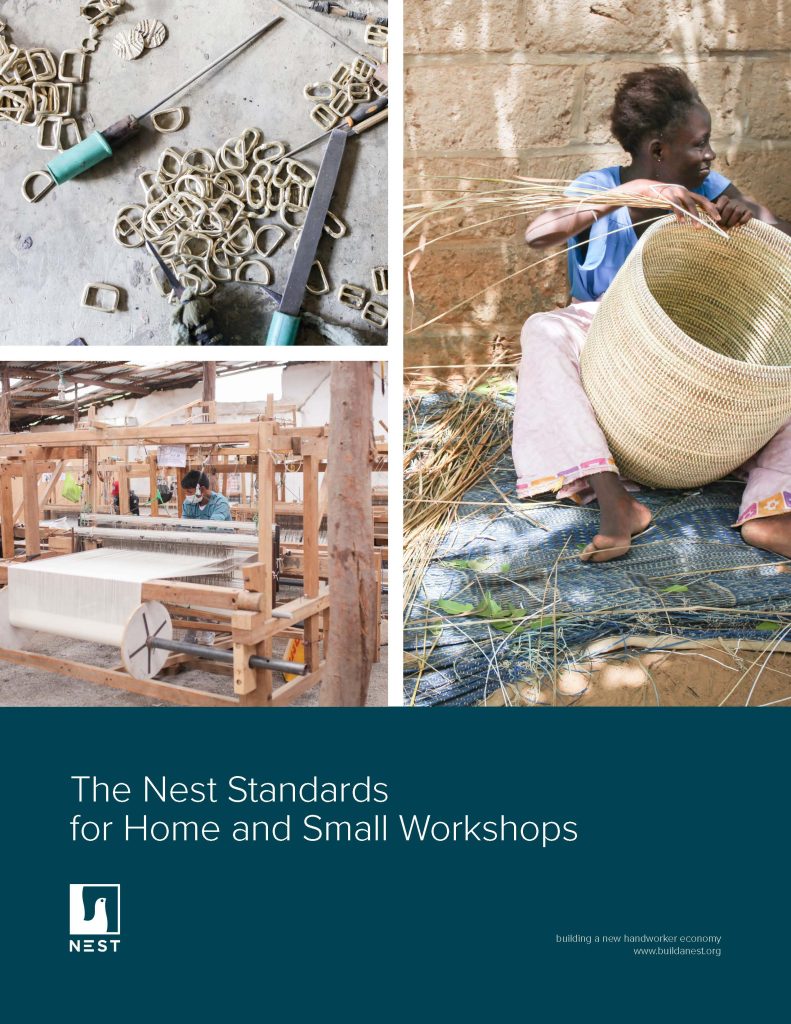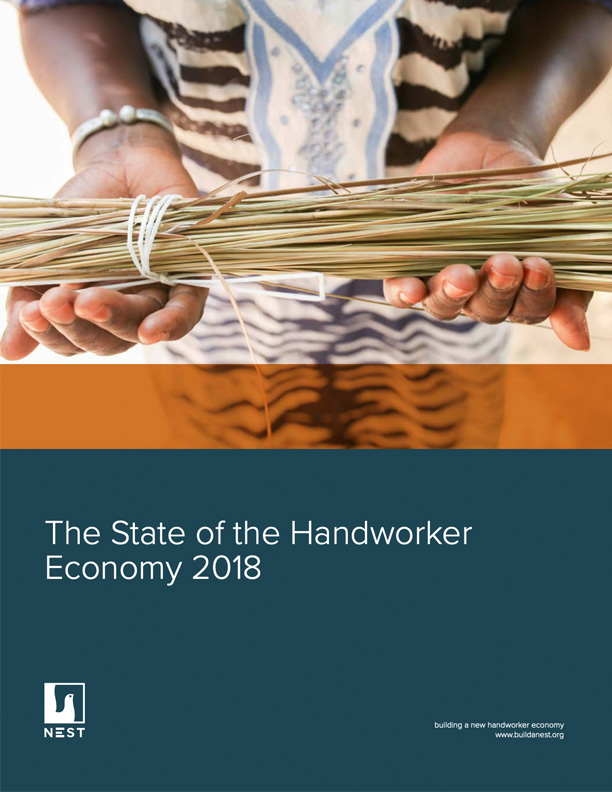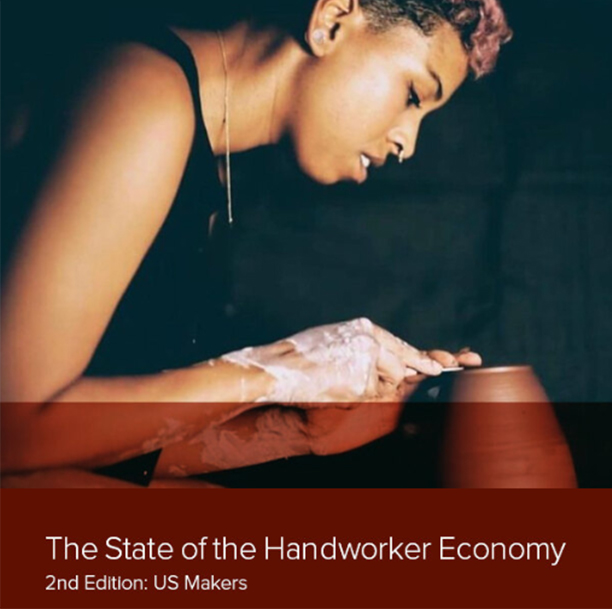Nest
Nest has created a global platform for supporting maker businesses. With the help of Bloomberg Philanthropies, Nest instructs family-scale enterprises by replicating its specialized training programs. By employing new technology and skilled volunteers, Nest provides small companies with the technical know-how to boost their incomes and support their communities.
Nest was responsible for introducing the first industry-wide Ethical Compliance Standards for production undertaken outside a conventional large-scale factory environment. Nest partnered with Bloomberg Philanthropies and eight retail brands to pilot these standards with 11,000 artisans, launching this effort at the United Nations. Nest’s standards protect and train artisans and homeworkers in the fashion and design industries, ultimately leading to greater economic sustainability worldwide.

Our support of Nest has also led to the launch of Nest’s Seal of Ethical Handcraft, the first and only-consumer facing mark certifying that products from fashion to furniture, are ethically handcrafted in a home or small workshop. Products with the Nest Seal can be found on over 400 products across 2,000+ retail stores, including Target, West Elm, Pottery Barn, and Pottery Barn Kids.

Since 2014, Nest has reached more than 250,000 handworkers in 125 countries, while artisans increased their incomes over the minimum wage by 108%.
Reports
Recognizing the lack of data on the handworker economy, Bloomberg Philanthropies has supported Nest in launching reports like the State of the Handworker Economy 2018. The report shares new data on artisans, home-based workers, and the craft economy, representing a market that reached $526 billion globally in 2017.
In 2022, with Bloomberg Philanthropies’ support, Nest released the State of the Handworker Economy, 2nd Edition: US Makers report. The report compiles data on home-based workers in the U.S. craft economy, an industry with an estimated value of $242 billion in the United States in 2019.
The Nest Ethical Compliance Standards
Nest is using radical transparency, data-driven development, and fair market access to connect craftspeople, brands, and consumers in a circular and human centric value chain.
The State of the Handworker Economy 2018
Nest’s State of the Handworker Economy Report reveals new descriptive data meant to provide readers with a fact-based picture of the handworker economy.
The State of the Handworker Economy, 2nd Edition: US Makers
Nest’s latest State of the Handworker Economy (SHE) Report explores the US maker economy and creates a first-of-its-kind benchmark from which we can begin to measure the size and value of this important sector, as well as its challenges and opportunities for growth.
Top photo: The beginning stages of a utensil holder on the lap of an artisan weaver in Uganda. Photo credit: Nest


